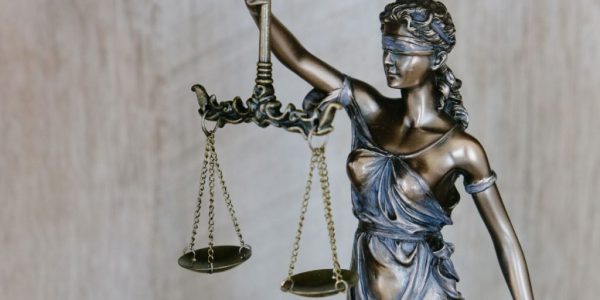Chapter 7 Bankruptcy in New York: A Comprehensive Guide
Introduction
Welcome to our comprehensive guide on Chapter 7 bankruptcy in New York! If you’re burdened by insurmountable debt and seeking a fresh financial start, Chapter 7 bankruptcy can provide the relief you need. In this guide, we will walk you through the key aspects of Chapter 7 bankruptcy in New York, including eligibility requirements, the filing process, exemptions, and the impact it may have on your financial future.
Chapter 7 Bankruptcy: An Overview
Chapter 7 bankruptcy, or liquidation bankruptcy, allows individuals and businesses to discharge their unsecured debts and start anew. In a Chapter 7 bankruptcy case, a trustee is appointed to collect and sell non-exempt assets to distribute the proceeds to creditors. However, many assets are protected by exemptions, allowing individuals to retain essential possessions.
Benefits of Chapter 7 Bankruptcy in New York
Chapter 7 bankruptcy offers several advantages that can significantly improve your financial situation:
- Debt Discharge: Chapter 7 bankruptcy allows for the discharge of most unsecured debts, including credit card debt, medical bills, and personal loans, providing you with a fresh financial start.
- Automatic Stay: Upon filing for Chapter 7 bankruptcy, an automatic stay is enacted, halting collection actions, creditor harassment, wage garnishment, and foreclosure proceedings.
- Asset Protection: Many assets are protected by exemptions, allowing you to retain the necessary property, such as your primary residence, vehicle, and essential personal belongings.
- Quick Debt Resolution: Chapter 7 bankruptcy cases are typically resolved within a few months, enabling you to move forward with your life and rebuild your finances.
Eligibility Criteria for Chapter 7 Bankruptcy
To file for Chapter 7 bankruptcy in New York, you must meet certain eligibility requirements:
- Means Test: The means test determines if your income falls below the median income for a household of a similar size in New York. You can file for Chapter 7 bankruptcy if you pass the means test.
- Credit Counseling: You must complete a credit counseling course from an approved agency within 180 days before filing for bankruptcy.
- Prior Bankruptcy Discharges: If you have received a Chapter 7 bankruptcy discharge within the past eight years or a Chapter 13 discharge within the past six years, there may be restrictions on your ability to file for Chapter 7 bankruptcy.
The Chapter 7 Bankruptcy Filing Process
Filing for Chapter 7 bankruptcy in New York involves several important steps:
- Educate Yourself: Familiarize yourself with the Chapter 7 bankruptcy process, laws, and regulations to clearly understand what to expect.
- Consult with an Attorney: Seek guidance from a knowledgeable bankruptcy attorney who can assess your financial situation, provide legal advice, and guide you through the filing process.
- Complete Credit Counseling: Before filing, you must complete a credit counseling course from an approved agency to gain insights into your financial situation and explore alternatives to bankruptcy.
- Prepare and File Bankruptcy Forms: Gather the necessary financial information and documentation, and complete the required bankruptcy forms, including schedules, statements of financial affairs, and a list of assets and liabilities.
- Submit Your Filing: File your bankruptcy forms and pay the associated filing fee with the bankruptcy court with jurisdiction over your area.
- Attend the Meeting of Creditors: After filing, you must attend a meeting of creditors, where the bankruptcy trustee and your creditors may ask you questions about your financial affairs and assets.
- Asset Liquidation and Debt Discharge: The trustee will evaluate your non-exempt assets, liquidate them if necessary, and distribute the proceeds to your creditors. Once this process is complete, your qualifying debts will be discharged.
Exemptions in Chapter 7, Bankruptcy
Exemptions play a crucial role in Chapter 7 bankruptcy, allowing individuals to retain certain assets. In New York, you can choose between federal and state exemptions. Some common exemptions in New York include:
- Homestead Exemption: Protects the equity in your primary residence up to a certain dollar amount.
- Vehicle Exemption: Shields the value of one or more vehicles, enabling you to retain your mode of transportation.
- Personal Property Exemptions: Provides exemptions for essential personal belongings, such as clothing, furniture, appliances, and jewelry, up to certain limits.
- Wildcard Exemption: Allows you to exempt a certain amount of any property you choose, providing additional flexibility in protecting assets.
The Impact of Chapter 7 Bankruptcy
Chapter 7 bankruptcy can have both immediate and long-term effects on your financial situation:
- Credit Score: Filing for Chapter 7 bankruptcy will hurt your credit score, and it will remain on your credit report for up to ten years. However, rebuilding your credit is possible with responsible financial practices.
- Debt Discharge: Chapter 7 bankruptcy discharges qualifying debts, relieving you of the legal obligation to repay them. This offers a fresh financial start and the opportunity to rebuild your financial future.
- Rebuilding Credit: While it may take time to rebuild your credit after Chapter 7 bankruptcy, you can take proactive steps such as obtaining a secured credit card, making timely payments, and maintaining a low credit utilization ratio.
Conclusion
Chapter 7 bankruptcy in New York is a powerful tool that allows individuals and businesses to eliminate overwhelming debt and start anew. By understanding the eligibility criteria, filing process, exemptions, and potential impact on your financial future, you can make informed decisions about pursuing Chapter 7 bankruptcy. It is important to consult with a knowledgeable bankruptcy attorney to navigate the complexities of the process and ensure the best possible outcome for your specific situation.
Please note that the information provided in this guide is for educational purposes only and should not be considered legal advice. Each individual’s financial circumstances are unique, and it’s crucial to consult a qualified professional to assess your situation.
The post Chapter 7 Bankruptcy in New York appeared first on locallawyerny.com.
The post Chapter 7 Bankruptcy in New York appeared first on lawyer.bet.







